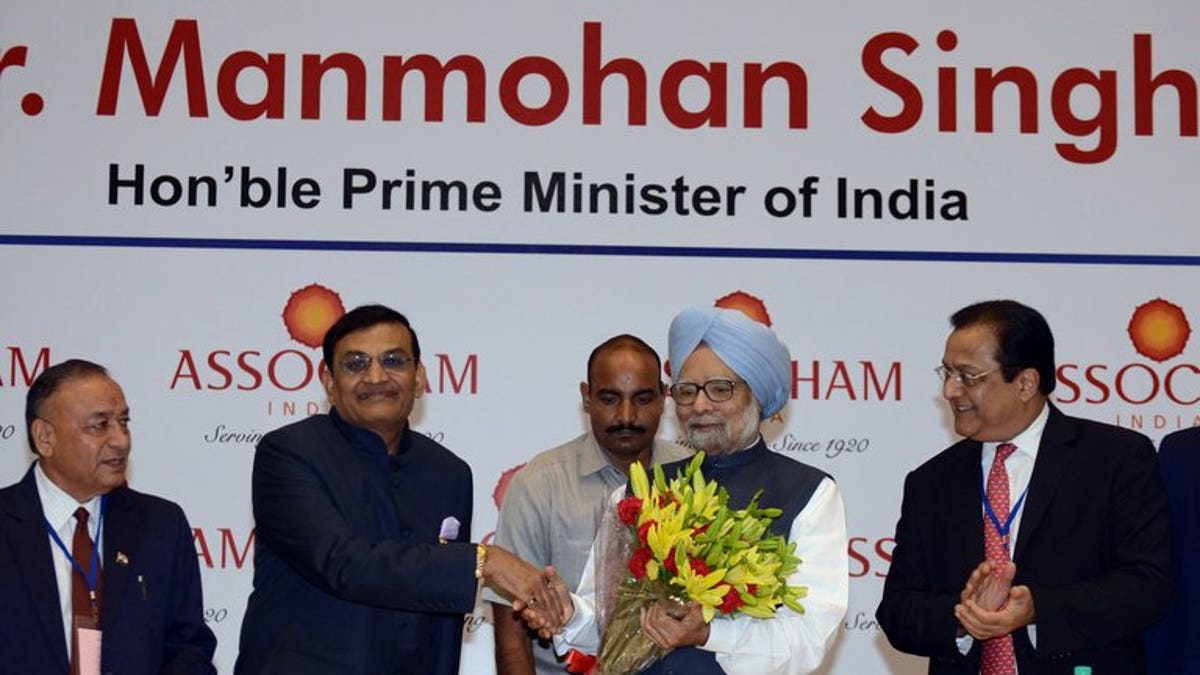
Manmohan Singh (centre right) at a meeting of industry leaders in New Delhi on Friday. India's Prime Minister urged investors to "remain optimistic", while acknowledging growth in 2013-14 is likely to fall short of the government's 6.5% target. (AFP)
NEW DELHI, Delhi province (AFP) – Indian Prime Minister Manmohan Singh urged investors Friday to "remain optimistic", while acknowledging growth in 2013-14 is likely to fall short of the government's 6.5% target.
Singh also warned India had to lower its current account deficit to 2.5 percent of gross domestic product and pledged more measures to open up the struggling economy to foreign investors after a raft of recent reforms.
With less than a year before elections, Singh is trying to rebuild confidence in an economy that grew five percent last year -- the slowest in a decade -- and boost the rupee, which has hit a string of record lows in recent weeks.
"We had targeted 6.5 percent growth at the time the budget was presented but it looks as if it will be lower than that," Singh told an audience of industry leaders in New Delhi.
"The most immediate cause of worry is the volatility of the rupee in foreign exchange markets," Singh said, adding the situation was likely exacerbated by a ballooning current account deficit of 4.7 percent in 2012-13.
"We should bring the current account deficit down to 2.5 percent of our GDP," he added.
"It is clearly not possible to do this in one year but I expect that the current account deficit in 2013-14 will be much lower than... last year."
India's deficit stems mainly from large oil and gold imports, and Singh said the government was taking serious measures to reduce demand for both products, while expressing hope that a weak rupee would bolster exports.
India's current account deficit narrowed to 3.6 percent of gross domestic product in the first quarter of 2013, according to data released last month.
Singh's efforts to kickstart the economy and lure investment come as the scandal-tainted Congress government readies to face voters in general elections due by May 2014.
Indian ministers earlier this week cleared plans to remove the foreign investment cap in telecoms and relax overseas ownership rules in a host of sectors in a new economic reforms push.
But the moves to woo investors suffered setbacks the same week as South Korea's Posco and steel giant ArcelorMittal pulled out of proposed projects, underlying the difficulties of doing business in India.
